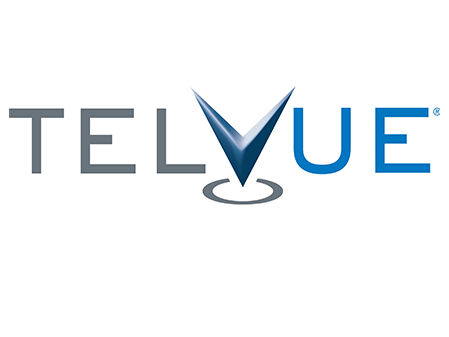WCM asks Wisconsin's Congressional Delegation to oppose H. R. 3557
December 5, 2023. Last week WCM sent a letter to all of the members of Wisconsin's Congressional delegation to inform them of the dangers of H. R. 3557. The letter said in part, "Proponents claim the purpose of H. R. 3557 is to hasten broadband rollout, but the long-lasting consequence of this bill will be to dangerously erode the ability of communities to control their rights-of-way and to overturn long-standing federal law that enables local governments to enter into negotiated cable television franchise agreements with video service providers."
This is the letter sent to the Office of Congressman Glen Grothman.
WCM has also created an opposition template letter. If a municipality is interested in crafting a resolution in opposition, it can use the template letter as a starting point or take some ideas from this excellent resolution passed by the United States Conference of Mayors.
Update: The City of Wausau passed a resolution at its Common Council meeting of December 19, 2023. Click here for a copy.
U.S. House bill seeks to eliminate local cable franchising and gut local control
June 6, 2023. Local control is being attacked in a new bill coming out of the U. S. House of Representatives Energy and Commerce Committee. In the name of “streamlining” the permitting process to roll out broadband, H.R. 3557 strips local and state governments of their traditional powers to control what happens on public property so that telecom companies can implement their business plans without opposition from communities.
All on the chopping block are local cable television franchises, siting control over wireless facilities, and the amount that municipalities can charge for the use of public utility poles. In Wisconsin, although we already have a very weak “video service provider” law that has stripped most power from municipalities, H.R. 3557 could make things even worse.
H. R. 3557 would allow cable television providers to walk away from communities 90 days after giving notice.
The legislation does away with local cable franchising by eliminating the idea of a franchise term and therefore, the idea of franchise renewals, and instead empowers companies to modify existing agreements pretty much at will. Under the law, cable operators would be able to make changes in franchise agreements for “good cause” and municipalities would be required to respond within 120 days or the changes would go into effect on day 121. If a municipality rejects the change, the company could appeal to the Federal Communications Commission, however, with the wide latitude given companies in this bill, most municipalities would likely approve changes.
It is uncertain how Wisconsin PEG (Public, Education and Government) cable access channels would fair under this law. The bill says any modification must maintain the “mix, quality, and level of cable services required by the franchise at the time the franchise was granted.” But it seems possible that a video service provider could request that Wisconsin law be changed to make municipalities pay more to have PEG channels on cable television systems. Currently, PEG channels are required to be transmitted at no charge. The State of Wisconsin also grants ten-year franchise terms and video service providers must apply for renewal. These provisions would no longer be enforceable should this federal law pass.
Nationwide, all local governments currently have the power to oversee how public roads and easements are used by private companies. This bill would mandate that all wireless siting decisions be “deemed granted” if not acted upon quickly – in some cases local governments would be given only 60 days to act. Telecom companies could choose where to place equipment boxes in public areas without regard to any local ordinances. The bill would decrease the fees municipalities could assess companies when they use public utility poles. In many cases, local authorities would not even be informed when work is done in the rights-of-way, raising public safety concerns about the bill.
Everyone is interested in getting high speed broadband to unserved and underserved areas, but this bill’s true purpose is to allow telecom companies to do whatever they want, however they want, and whenever they want without having to consider the views of a community.
As the National Association of Counties (NACo) puts it, “NACo strongly supports the central role that counties play in the deployment of broadband services, and NACo urges Congress to vote no on H.R. 3557 in order to preserve local decision-making authority in the hands of local governments who universally desire high-speed internet access for their residents.”
Wisconsin Community Media is opposed to this bill. Also in opposition is the US Conference of Mayors and the Alliance for Community Media (ACM), the national organization supporting PEG channels. ACM created this talking points piece about the bill.
— Mary Cardona
Executive Director
Wisconsin Community Media
Baldwin Co-Sponsors the Protecting Community Television Act
Senator Tammy Baldwin
January 5, 2022. WCM sent a thank you note to Senator Tammy Baldwin today for co-sponsoring the federal bill, the Protecting Community Television Act. This legislation makes clear that local franchising authorities (in Wisconsin, that's state government) may assess up to a 5% cable TV franchise fee on cable company gross revenues as well as negotiate for additional in-kind support.
We hope other members of the Wisconsin delegation will follow suit.
In the letter Mary Cardona, Executive Director of Wisconsin Community Media praised Baldwin for “always being at the forefront of protecting local communications. This kind of leadership is needed now more than ever.”
Senator Baldwin was the first recipient of WCM’s Friend of Access Award in 2006. She received it again in 2012 for her work on behalf of community television.
Federal legislation being re-introduced to clarify the Cable Act - Sponsors sought
December 2021. The Protecting Community Television Act is a simple straightforward bill that makes clear that local franchising authorities may assess up to a 5% cable TV franchise fee on cable company gross revenues as well as negotiate for additional in-kind support. The clarification is necessary to undo a 2019 decision by the FCC which upended nearly forty years of practice in implementing the provisions of the Cable Act.
The bill was introduced last session (see article below) and is being introduced again this session by Senator Ed Markey (D - Mass) and Rep. Anna Eshoo (D - Calif). Senator Tammy Baldwin (D - Wis) is a sponsor. The Alliance for Community Media is organizing a push to add more sponsors to the legislation.
Note that in Wisconsin, the local franchising authority is the State, and that our franchise fees have been reduced to a maximum of 4% as a result of action by the state legislature (the reduction made up by state aid). Also, Wisconsin state law outlaws nearly all in-kind support from cable television operators. Nevertheless, even though Wisconsin law is extremely favorable to cable operators, passage of this federal law would eliminate the possibility of any further reduction in support.
For more information about the FCC Report and Order which created the need for this legislation see the article entitled “FCC votes 3 - 2 to approve Third Report and Order” on the FCC Advocacy page.
The Protecting Community Television Act is introduced
January 2020. The Protecting Community Television Act would clarify that Local Cable Franchising Authorities are allowed to seek a 5% Franchise Fee and In-Kind support from cable operators under current federal law and as it has been interpreted for more than 30 years.
Wisconsin Senator Tammy Baldwin and Wisconsin Representative Gwen Moore have signed onto the legislation as sponsors.
A recent FCC Report and Order directed that the 5% franchise fee cap allowed by federal law include both monetary fees and in-kind support requirements (excluding capital for PEG access media centers).
The FCC's new interpretation of the law could affect Wisconsin if cable operators decided to charge cities for the in-kind operating support they provide to maintain and "operate" the "upstream" transmission lines that carry local programming from PEG access channel origination points like City Halls to a cable system headend. In addition, a lot of people continue to fear that the FCC will make good on its promise to follow up on its Report & Order and expand “in-kind support” to include the access channels themselves. If these channels are monetized using some formula and then deducted from franchise fees (called video service provider fees under Wisconsin law), it would largely end the use of cable television for local speech in Wisconsin.
Charter Communications and other video providers have not begun charging cities for operating upstream transmission lines and even if they did, at this point Wisconsin cities are not likely to see any reduction in franchise fees. That is because the Wisconsin State Legislature reduced the franchise fee percentage cable operators pay from 5% to a 4% maximum. Any charges for operating upstream transmission lines would need to exceed the difference between 4% and 5% for operators to be able to charge cities. Note that the state taxpayers are now making up the difference between current fees and former fee levels.
Wisconsin law does not require cable operators to provide any capital support to PEG media centers or in fact ANY in-kind cable-related support to cities other than the upstream transmission lines described above. Since Wisconsin no longer has local cable TV franchising, Wisconsin law acts as a statewide franchise agreement.
Letters of support and the Protecting Community Television Act collected by Atty. Mike Bradley, a Minnesota attorney.









